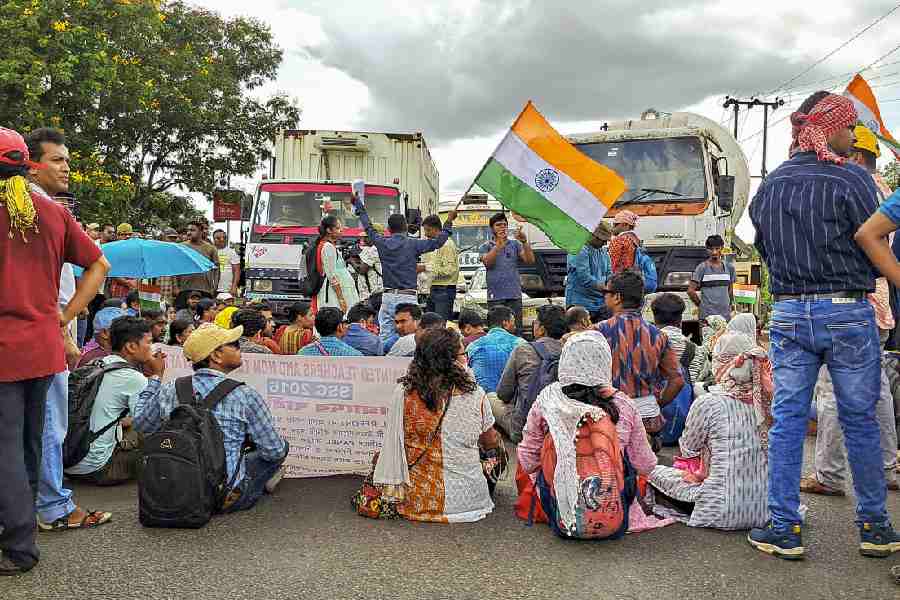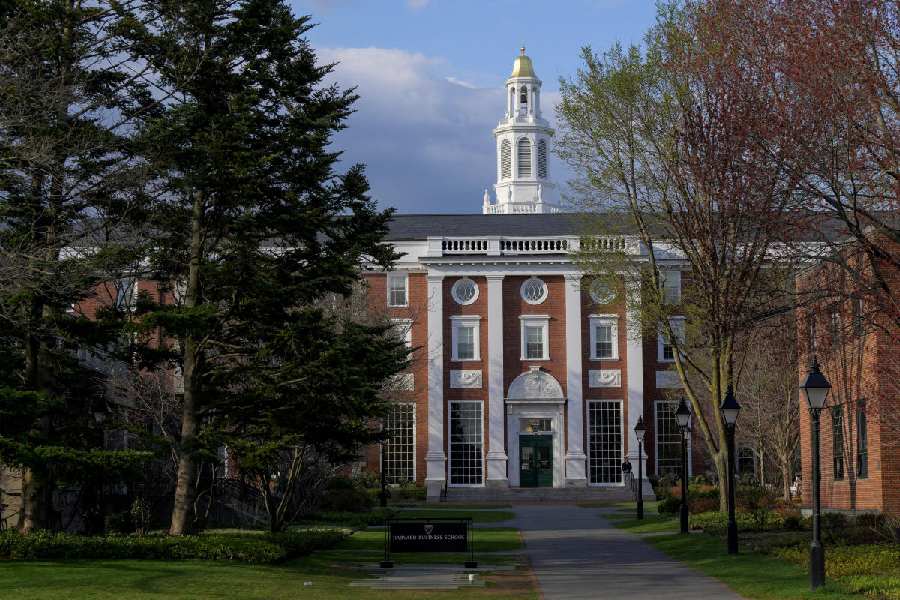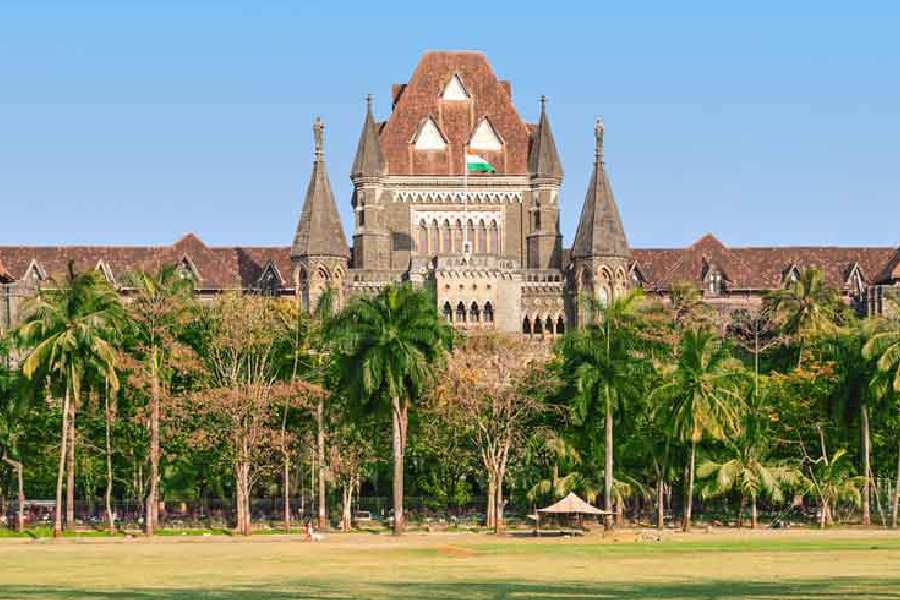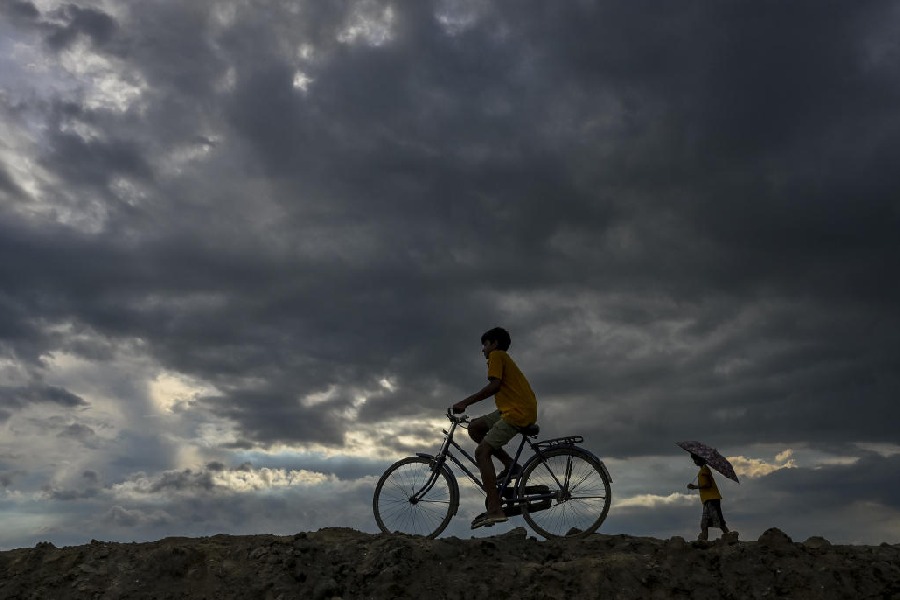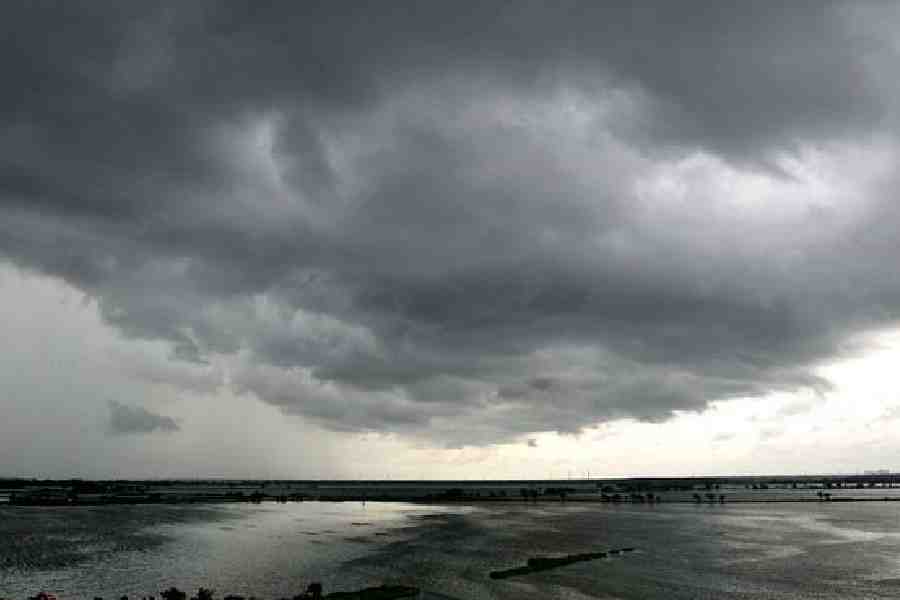 |
| NO STONE UNTURNED: An Israeli security officer inspects a plastic walkway at Rajghat before Ariel Sharon’s visit on Tuesday. (AFP) |
 |
| Sharon with Vajpayee. (AFP) |
New Delhi, Sept. 9: India greeted new ally Israel with a pledge to cooperate in the fight against global terrorism but slipped in a thought for an old friend by saying it would neither dilute the traditional support for the Palestine cause nor dump Yasser Arafat.
Careful not to give momentum to sporadic protests on the streets against the visit of Ariel Sharon — the first Israeli Prime Minister to make such a trip —Delhi made democracy the cornerstone of the offer of cooperation. India said it would work closely with “Israel and other democracies like the US” in the fight against terror.
However, walking a diplomatic tightrope, India also hoped for cessation of violence and an early return of peace in West Asia — an area which, along with the Gulf, it described as its “extended neighbourhood”.
The discussions formed part of the 40-minute “restricted” meeting between Prime Minister Atal Bihari Vajpayee and Sharon tonight. Later, it extended to delegation level talks which continued till a banquet that Vajpayee hosted for his guest from Tel Aviv.
Peace was on Delhi’s lips, but terror was on everyone’s mind. As Sharon dined with Vajpayee, news came in of a suicide strike near Tel Aviv that killed four.
The Israeli Prime Minister reacted with characteristic fury. “There has to be full cessation of terror,” Sharon said.
Vajpayee, too, had touched on the theme earlier. An “aspect of our common experience is the menace of terrorism. Bilaterally and on the international plane, we are contributing to the global fight against terrorism”, he said. “It is a menace that particularly targets democratic societies, which have to fashion a global and comprehensive response to tackle it.”
However, in a gentle reminder, Vajpayee added that while India was putting up a determined “struggle to defeat terrorism” and bring international pressure on those who support the menace, it was also trying its best to improve ties with “all our neighbours”.
During discussions with the Indian leadership earlier, the Israeli Prime Minister had indicated that he does not have much faith in Arafat as a peacemaker. This prompted Delhi to reaffirm its faith in the warhorse from the non-aligned era.
Sharon described India as “one of the most important countries in the world” and expressed the hope that his visit would help achieve “many things together in many areas”.
'Strategic triangle'
The Indian side took care to steer clear of any controversial statements but an official travelling in the Israeli Prime Minister’s delegation was quoted by agencies as having said that the September 11 terror strikes in the US and the global campaign against terrorism have “created a new opportunity” for stronger ties between Delhi, Tel Aviv and Washington.
“We are talking about a trilateral strategic triangle combining efforts and joining hands to combat terrorism in Asia, where we see a large rise in terror activity, particularly of the radical Islamic brand,” he was quoted as saying.
India and Israel signed agreements on cooperation in science and technology, space, education, culture, health, agriculture and combating narco-terrorism.


